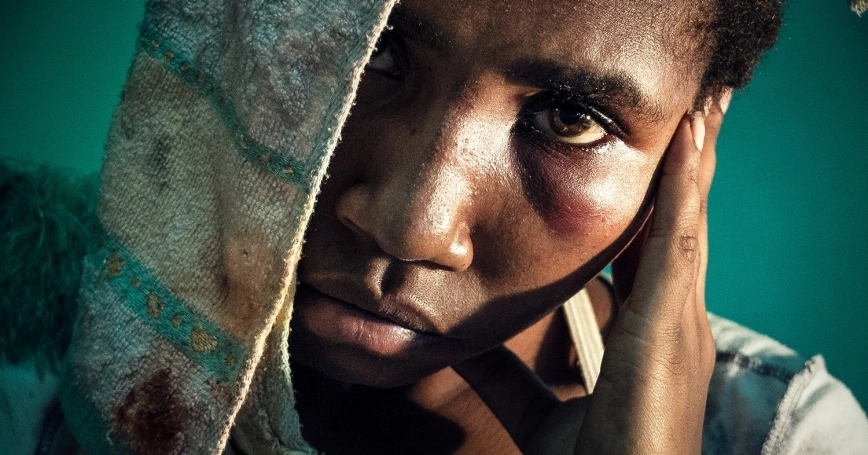On a quiet January night in 2024, Asake Ojo was beaten mercilessly by her husband, a regular occurrence in their Ketu apartment in Lagos State. Heedless of her advanced pregnancy, Asake had long endured the abuse, often seeking help from her husband’s family, viewing the violence as a private family matter. However, that night was different. Her body, weakened from years of abuse, succumbed to the injuries, leading to the tragic deaths of both Asake and her unborn baby.
Asake’s story is one of many tragic deaths linked to intimate partner violence—a global scourge that disproportionately affects pregnant women and is often fatal. The United Nations describes intimate partner violence as behaviours that cause physical, sexual, or psychological harm by a current or former partner. One aspect of this is domestic violence, which occurs within households and devastates families worldwide.
Domestic violence is not just a personal tragedy; it is a public health issue of alarming proportions. The World Health Organization (WHO) reports that nearly 1 in 3 women worldwide experience physical or sexual violence, mostly by an intimate partner. Furthermore, more than a quarter of women aged 15 to 49 have endured physical or sexual violence by a partner at least once since the age of 15. Globally, up to 38% of all female murders are committed by intimate partners.
Factors such as age, education level, location (urban or rural), and income level influence a woman’s risk of experiencing intimate partner violence. Similarly, a partner’s behaviours—such as alcohol use, unemployment, and a history of abusive behaviour—play a significant role in determining whether a woman is at risk. These risk factors are especially pronounced in Nigeria, where domestic violence is widespread.
As of October 2023, Nigeria has witnessed a disturbing rise in cases of sexual and gender-based violence (SGBV). Radio Nigeria reported that approximately 955 cases of SGBV have ended in the victim’s death. Nationwide, 1 in 3 women has experienced some form of spousal violence. According to the Gender-based Violence Data Situation Room, between 2020 and 2023, 27,698 cases of SGBV were recorded in Nigeria, as confirmed by the Minister of Women Affairs, Uju Kennedy-Ohanenye.
These figures paint a grim picture of Nigeria’s struggle with domestic violence and cast doubt on the country’s ability to achieve Sustainable Development Goal 5, which seeks to end violence against women by 2030. If domestic violence were eradicated, up to 20% of women’s visits to hospitals and clinics could be avoided. The need to address this issue is not just a moral imperative but a public health necessity.
A Public Health Concern
The physical and psychological toll of domestic violence on women is profound. Abuse can lead to a range of injuries, from bruises and burns to broken bones and long-term disabilities. Women who endure domestic violence are also more likely to develop chronic health conditions compared to those who are not abused.
Mental health is another casualty of domestic violence. Many victims suffer from depression, anxiety, post-traumatic stress disorder (PTSD), and low self-esteem. Domestic violence survivors are also at greater risk of self-harm and suicide.
Domestic violence not only affects individual victims but also perpetuates a cycle of violence that harms future generations. Studies show that in homes where intimate partner violence occurs, up to 40% of children also suffer abuse. These children often grow up to become either abusers or victims of abuse themselves, reinforcing a cycle that devastates families and communities.
Beyond these individual impacts, the ultimate cost of domestic violence is often life itself, as tragically seen in the cases of Asake Ojo and countless others. Georges Benjamin, Executive Director of the American Public Health Association, emphasises that a public health crisis is defined not just by its scale but by its impact, stating, “It represents a health threat that is substantial in size or impact such that an urgent response is needed.”
International organisations, federal governments, and local bodies are increasingly recognising intimate partner violence as a major public health issue and a violation of women’s human rights. The World Health Organisation and other civil society groups have called for urgent action to address this crisis.
The Way Forward
Addressing domestic violence in Nigeria requires a multifaceted approach. Relevant agencies, such as the Nigerian Police and the Ministry of Women Affairs and Social Development, must intensify their efforts to investigate cases of domestic violence thoroughly, protect victims, and ensure that perpetrators face justice.
Civil society organisations (CSOs) also play a crucial role in addressing domestic violence as a public health emergency. Through advocacy and rehabilitation programs, they can help raise awareness and provide support to survivors.
The Violence Against Persons Prohibition (VAPP) Act, signed into law in 2015 by former President Goodluck Jonathan, provides a legal framework to protect women and girls from physical, sexual, and psychological violence. The VAPP Act aims to safeguard vulnerable populations from harmful traditional practices and domestic abuse. However, despite the existence of this law, domestic violence cases continue to rise in Nigeria.
Alarmingly, there is now a new threat to the fight against domestic violence. Senator Jibrin Isah of Kogi East District recently proposed a bill seeking to repeal the VAPP Act, a move that would nullify the progress made by citizens, CSOs, and government agencies in combating intimate partner violence in Nigeria. If passed, this bill would undermine years of work to protect vulnerable women and girls from violence.
Domestic violence is not just a personal issue—it is a public health crisis that demands urgent attention. The lives lost to domestic violence, like those of Asake Ojo and her unborn child, are not isolated incidents but part of a wider epidemic that has far-reaching social, economic, and health impacts. Stronger laws, more robust enforcement, and greater collaboration with civil society organisations are essential to protecting women and eradicating this form of violence. Only then can Nigeria move closer to a future where women can live free from the threat of domestic violence.
On a January night in 2024, Asake Ojo and her unborn baby tragically died after years of abuse by her husband in Lagos, Nigeria. This story highlights the severe impact of intimate partner violence, a global issue affecting many pregnant women and often leading to fatal outcomes. The UN defines intimate partner violence as behaviours causing physical, sexual, or psychological harm by a current or former partner. Reports from the WHO indicate that nearly one-third of women worldwide experience such violence, with dire public health consequences.
In Nigeria, cases of sexual and gender-based violence (SGBV) have surged, leading to significant fatalities and affecting millions of women. Despite the enactment of the Violence Against Persons Prohibition (VAPP) Act in 2015, aimed at protecting women from various forms of abuse, domestic violence remains rampant. Factors such as age, education, and socio-economic conditions contribute to the risk, necessitating urgent action from both government and civil society organizations to address this crisis.
The physical and psychological effects of domestic violence are profound, with victims suffering from injuries, chronic conditions, and mental health issues like depression and PTSD. Children in these environments are also at risk of experiencing or perpetuating violence, creating a vicious cycle. The situation demands a multifaceted approach, including stronger enforcement of laws, thorough investigations, and support services for survivors, to effectively combat and eventually eradicate intimate partner violence in Nigeria.






